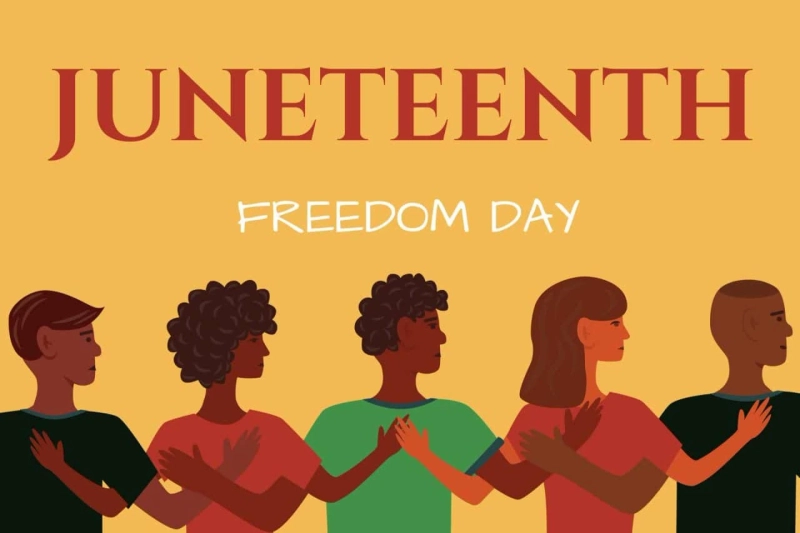In this article, we delve into the fascinating journey of Juneteenth, tracing its roots from the day of emancipation to becoming a national celebration. Juneteenth commemorates June 19, 1865, when General Gordon Granger arrived in Galveston, Texas, and announced the end of slavery, two years after the Emancipation Proclamation had taken effect. From its humble beginnings as a local Texas holiday, Juneteenth has evolved into a symbolic and joyous occasion celebrated by African Americans across the United States.
The significance of Juneteenth goes beyond the final act of emancipation. It signifies the resilience and strength of a community that fought for their freedom despite the odds stacked against them. It is a time to honor, remember, and reflect on the struggles and progress made towards racial equality.
Join us as we explore the historical context, traditions, and cultural significance of Juneteenth, and discover why it continues to be an important event in American history. From local gatherings to nationwide festivities, Juneteenth serves as a poignant reminder of the ongoing fight for justice and equality for all.
What is Juneteenth?
Juneteenth, also known as Freedom Day or Emancipation Day, is an annual celebration that commemorates the end of slavery in the United States. It takes place on June 19th and holds immense significance for African Americans across the nation. On this day in 1865, General Gordon Granger arrived in Galveston, Texas, and announced the end of slavery, two years after the Emancipation Proclamation had taken effect. Juneteenth is a time to reflect on the struggles and progress made towards racial equality. It serves as a reminder of the resilience and strength of a community that fought for their freedom despite the odds stacked against them.
Juneteenth was born out of the desire to honor and remember the struggles of African Americans and celebrate their emancipation. juneteenth federal holiday It originated in Texas, where it was first celebrated in 1866, a year after General Granger\'s announcement. The day was initially marked by church gatherings, prayer services, and community events. Over time, Juneteenth spread to other states and became a significant event in African American communities throughout the country.
The history of Juneteenth
The history of Juneteenth can be traced back to the Emancipation Proclamation, which was issued by President Abraham Lincoln on January 1, 1863. This historic document declared all slaves in Confederate territory to be free. However, due to the ongoing Civil War, the proclamation was not immediately enforced in many areas, especially in Texas, a remote and isolated state at the time.
It wasn\'t until June 19, 1865, that General Gordon Granger arrived in Galveston, Texas, with Union troops and announced the end of slavery. This momentous occasion, known as Juneteenth, marked the liberation of the last remaining enslaved African Americans in the United States. The news of their freedom brought immense joy and relief to those who had endured the horrors of slavery for far too long.
The significance of Juneteenth in African American history
Juneteenth holds deep significance in African American history as a symbol of freedom and the ongoing struggle for equality. It represents the resilience, strength, and determination of a community that refused to be oppressed. Juneteenth serves as a reminder of the sacrifices made by previous generations and the progress that has been achieved in the fight against racial injustice.
For many African Americans, Juneteenth is a time to honor their ancestors and pay tribute to their struggles. It provides an opportunity to reflect on the challenges faced by the community throughout history and to celebrate the achievements and contributions of African Americans to society. Juneteenth also serves as a reminder of the work that still needs to be done to achieve true equality for all.
Juneteenth as a national holiday
In recent years, there has been a growing movement to recognize Juneteenth as a national holiday. The significance of this day in American history cannot be overstated, and making it a national holiday would provide an opportunity for all Americans to learn about and commemorate the end of slavery.
On June 17, 2021, Juneteenth became the 12th federal holiday in the United States. The passage of the Juneteenth National Independence Day Act was a historic moment, signifying the recognition of Juneteenth as an important part of American history. This national holiday serves as a reminder that the fight for equality and justice is ongoing, and that we must continue to work towards a more inclusive and equitable society.
Juneteenth food and recipes
Food plays a significant role in Juneteenth celebrations, with traditional dishes and recipes passed down through generations. These culinary traditions serve as a way to connect with and honor the past while celebrating the present.
One popular dish often enjoyed on Juneteenth is red velvet cake. Its vibrant color symbolizes the resilience and strength of African Americans throughout history. Other traditional foods include barbecue, fried chicken, collard greens, cornbread, and sweet potato pie. These dishes reflect the flavors and ingredients that have been a part of African American culture for centuries.
Conclusion: Honoring the past and embracing the future
Juneteenth is a day of remembrance, celebration, and reflection. It is a time to honor the struggles and sacrifices of those who fought for freedom and equality. It is also an opportunity to celebrate the progress that has been made and to acknowledge the work that still needs to be done.
As Juneteenth continues to gain recognition and significance, it serves as a powerful reminder that the fight for justice and equality is not over. It is a call to action for all Americans to work towards a more inclusive and equitable society. By honoring the past and embracing the future, we can move forward together towards a brighter and more just future for all.



